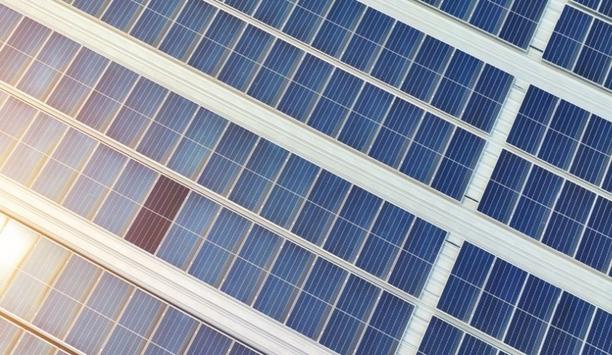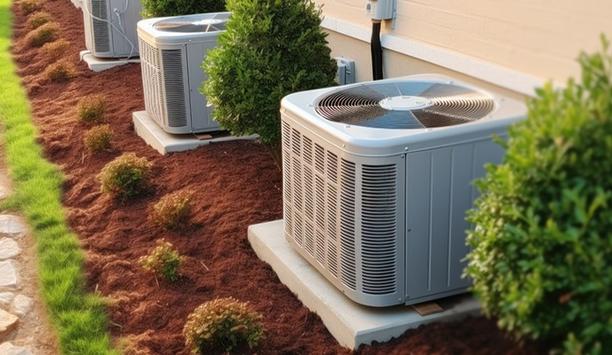Gaining early popularity in the 1970s, previous generations of heat pumps were only considered useful in mild climates. But today, modern heat pumps, especially variable-speed mini-split heat pumps, are reliable, sustainable, and used in various ways, including ways our parents and grandparents would never have thought of. New uses include she sheds, man caves, garages, tiny homes, sunrooms, and even boats.
We spoke to Sean Gallagher, Regional Sales Manager, Eastern Massachusetts, Mitsubishi Electric Trane HVAC US (METUS), to discuss how people use heat pumps in the U.S. and abroad. He described some of the technology's varied (and sometimes surprising!) uses.
Q: What are the most common applications of heat pumps on boats and marine crafts, and how do they differ from residential or commercial uses?
Gallagher: I know one Diamond Contractor® who installed a heat pump on his father’s yacht. Since my territory includes Southeast Massachusetts and Rhode Island, I frequently see heat pumps on the large car-carrying and passenger-carrying ferries.
Although commercial applications like ferries are more common, I think we will see more heat pumps on people’s boats and yachts, especially since we use an anti-corrosion coating that protects the outdoor heat exchanger against salt, sulfur and other airborne contaminants that impact the efficiency and performance of outdoor units.
Q: What are some other "off-beat" or previously underappreciated applications for heat pumps – she sheds, man caves, garages, tiny homes, sunrooms, or something similar?
Heat pumps are being used in high-end campers like Airstreams, smaller campers, parking lot kiosks
Gallagher: All those applications apply, and there’s plenty more. My niece lives in a 400-square-foot studio apartment over my garage that’s heated and cooled with a heat pump. I also installed a low, wall-mounted heat pump unit in my father’s tool and woodworking shed. Since his tools hang on the wall, he didn’t want to give up any wall space, so now, he has a climate-controlled workshop that suits his needs.
Heat pumps are also being used in high-end campers like Airstreams, smaller campers, parking lot kiosks, food trucks, and even intermodal shipping containers turned into spaces like laboratories.
Q: What are the key advantages of using variable-speed mini-split heat pumps in smaller applications in various climates?
Gallagher: All-climate heat pumps can conquer any climate in New England and most of the United States. Overall, variable-speed mini-split heat pumps provide efficiency, ease of installation, comfort, and quiet, regardless of outdoor temperature.
Some of the best heat pumps on the market provide warmth, even if the temperature drops to a chilly –22 degrees F. At the opposite end of the thermometer, heat pump systems can cool indoor spaces when it’s a scorching 115 degrees F.
Q: How does the equipment used for these applications differ from the equipment in more common HVAC use cases?
Gallagher: In most HVAC use cases, people use a unitary, conventional HVAC device to heat a home. However, the market has been moving away from unitary devices toward having custom control in every room. Think about if you turned on your kitchen faucet and every faucet in the house turned on, or if you turned on your bedroom light and every light in your home turned on with it.
It’s inefficient, which is how unitary systems work. All-climate heat pumps give precise temperature control and custom comfort in any area, whether it’s a shed, man cave, or garage. Each person can heat or cool the space to their comfort level. This is how heat pumps work in general and in these off-beat use cases.
Q: How has the reliability of modern heat pump technology expanded the potential for marine and other applications?
One-to-one heat pumps are perfect for smaller applications because of their turn-down ratio
Gallagher: Since Mitsubishi Electric’s Hyper-Heating INVERTER® (H2i®) technology is not new – having come out around 2009 – the technology has grown by leaps and bounds.
Today’s one-to-one heat pumps are perfect for smaller applications because of their turn-down ratio. They can ramp up quickly and then throttle back to meet the needs of a space, through a setpoint, in heating and cooling to use only the energy necessary to maintain the comfort of that indoor space. Multi-zone applications can handle larger spaces with ease and efficiency.
Q: Can you provide examples of how heat pumps are being used on boats or marine crafts in the U.S. and abroad? What technologies are they replacing?
Gallagher: Heat pumps are replacing electric-resistance heat, gas-fired HVAC units, and hydronic systems for watercraft powered by steam. For cooling, heat pumps are replacing chilled water systems on larger ships.
Heat pumps are frequently used on large car-carrying and passenger-carrying ferries. I also know of people who have installed them on yachts and other boats, which I think will become more prevalent.
Q: What are the challenges HVAC professionals might face when installing and maintaining heat pumps on boats and/or in smaller applications?
The biggest challenge they face is contending with the caustic nature of the saltwater environment
Gallagher: For maritime applications, the biggest challenge they face is contending with the caustic nature of the saltwater environment. I mentioned this a minute ago, but salt can degrade non-ferrous metals, like copper and aluminum. It’s crucial to use an anti-corrosion coating that protects the outdoor heat exchanger against salt, sulfur, and other airborne contaminants that impact the efficiency and performance of outdoor units.
Some companies specialize in taking heat pumps apart and coating all the parts that could corrode to prevent them from doing so. This makes the heat pumps last much longer than they otherwise would.
Q: How does the installation of heat pumps on boats align with the growing demand for energy-efficient and sustainable solutions in the marine industry?
Gallagher: Energy-efficient heat pumps consume far less energy than a conventional HVAC system. Heat pump systems cycle hot and cold air where it’s wanted depending on the season and provide personalized comfort on a boat year-round.
Modern heat pumps, especially variable-speed mini-split heat pumps, are reliable and sustainable, providing high-performance heating and air conditioning on boats anywhere, even in extremely cold or warm climates. Heat pumps are preferable in most climates, as the efficacy of a heat pump is generally 1.5 to 4 times greater when compared with electric resistance heating.





































